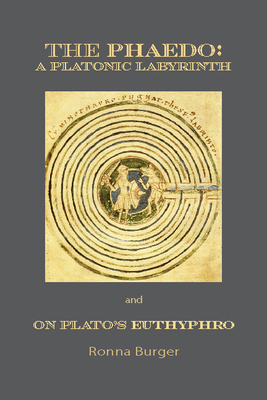The Phaedo: A Platonic Labyrinth and on Plato's Euthyphro: New Edition

The Phaedo: A Platonic Labyrinth and on Plato's Euthyphro: New Edition
Since antiquity the Phaedo has been considered the source of "the twin pillars of Platonism" - the theory of ideas and the immortality of the soul. Tracing the movement of the argument through the work as a whole, Burger is led to a radical rethinking of those doctrines. That movement is indicated by the structure of the dialogue, divided in two halves by a central interlude in which Socrates warns against the great danger of "misology," loss of trust in human reason. The discussion that follows, with that danger in mind, brings about a transformation in the understanding of knowledge, the ideas, the soul, death, and immortality. With this "second sailing," as Socrates calls it, the Platonism presented in the Phaedo emerges as precisely the target of which the dialogue is a critique. This revised and expanded edition includes a new Preface, "The Death of Socrates and the Post-Socratic Schools," and an essay, "On Plato's Euthyphro." "This is a comprehensive study of the Phaedo, thoroughly researched, and sparkling with insights into th
PRP: 232.50 Lei
Acesta este Prețul Recomandat de Producător. Prețul de vânzare al produsului este afișat mai jos.
209.25Lei
209.25Lei
232.50 LeiLivrare in 2-4 saptamani
Descrierea produsului
Since antiquity the Phaedo has been considered the source of "the twin pillars of Platonism" - the theory of ideas and the immortality of the soul. Tracing the movement of the argument through the work as a whole, Burger is led to a radical rethinking of those doctrines. That movement is indicated by the structure of the dialogue, divided in two halves by a central interlude in which Socrates warns against the great danger of "misology," loss of trust in human reason. The discussion that follows, with that danger in mind, brings about a transformation in the understanding of knowledge, the ideas, the soul, death, and immortality. With this "second sailing," as Socrates calls it, the Platonism presented in the Phaedo emerges as precisely the target of which the dialogue is a critique. This revised and expanded edition includes a new Preface, "The Death of Socrates and the Post-Socratic Schools," and an essay, "On Plato's Euthyphro." "This is a comprehensive study of the Phaedo, thoroughly researched, and sparkling with insights into th
Detaliile produsului









